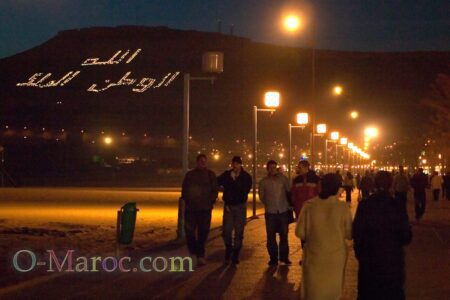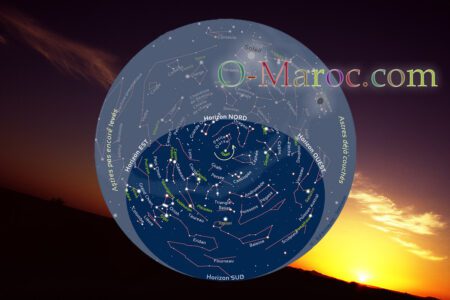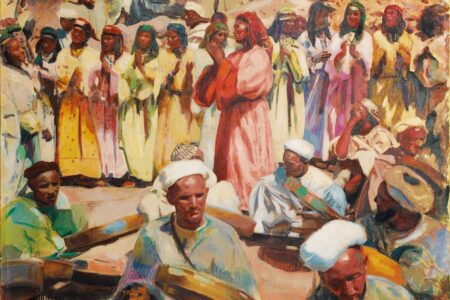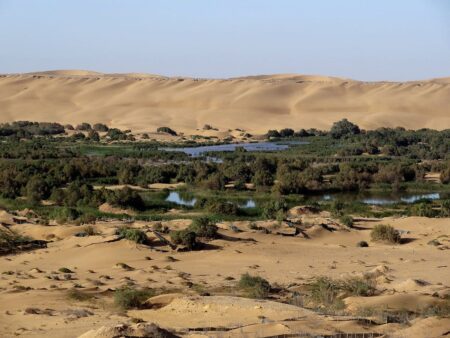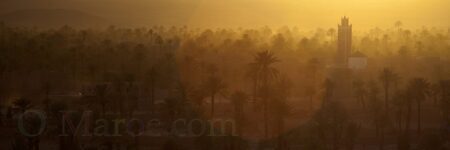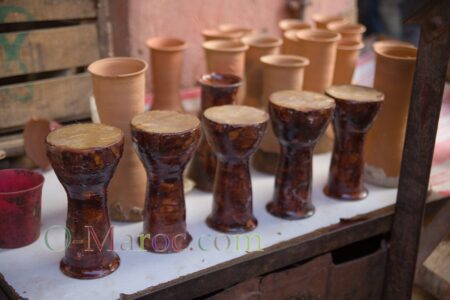Tazzarine is in the south of Morocco, but in the green zone: a risk-free holiday region, in other words.
Tazzarine, in the heart of the Drâa Valley
At the crossroads of the caravan routes, Tazzarine well represents the diversity of Morocco.
The town, whose name is said to come from Tizzri, the meeting, has indeed brought together various populations, Berber (mainly Aït Atta and Aït Meghad), Arab (Almoravids and Chorfas), Jewish until recently, and Gnawas, harmoniously mixed in the various douars.
(The etymology is also given as the plural of tazarte, which means fig tree).
A city of encounters, in the heart of south-eastern Morocco
Located on the great trade routes that criss-crossed the south, towards the salt mines and gold reserves of Mauritania, towards Rissani and its great souk, towards Zagora and towards Marrakesh , where the wealth of the south was exchanged for the works of the craftsmen of the north, on the borders of the Saharan desert, the valley and hamada of the Draa, a desert essentially of stones, Tazzarine has established relations with zawiyas, and holds its place in the great network of alliances of tribes and families which still structures the life of southern Morocco.
An impoverishment due to drought
An uneventful town, until the great drought of the 1980s, it derived its wealth from its palm groves and henna gardens, the production of which is found throughout Morocco.
But drought reduced the palm groves, the farms, and families had to find other means of subsistence, mainly through emigration, to the north of the country or to Europe.
The tarring of a road that will allow direct access to Zagora, as well as the development of the Boumalne du Dades track in Alnif, are once again developing the tourist passage, instead of confining the circuits to an overly classic loop. It is now possible to come to Tazzarine, and then return to Zagora or to Dades and Todgha without making too many detours.
(If you’re wondering why we talk about Tazzarine so much on this site, it’s simply because it’s my husband’s home town, where we started our Oasis in Mergarne project.)
The desert is a wonderful place for stargazing, with no light pollution and no 'fog' from human activity. It's an activity you can do in Morocco, and one that I've done regularly at Tazzarine.
What kind of dance is on offer at Tazzarine, in the heart of Berber country? No belly dancing, just ahidous or ahwach, two traditional group dances.
Every year, Tazzarine sends a camel on a pilgrimage to an Ait Morghad zawiya to celebrate the memory of Sidi Abderrahmane El Aroussi, as recounted by JM G Le Clézio.
Tazzarine is a very pretty village on the edge of the Draa valley, which hides its wonders far from the main tarmac road.
At Tazzarine, we had a beautiful bloom under the tamarisk trees in spring. I learned much later that it was a parasitic plant, cistanche, and not tamarisk roots, as they say.
For Ashura, a man wearing burning palms goes around Tazzarine asking, from door to door, for gaddid, which he will end up sharing with the children, in a corner of the ksar, out of sight of the adults.
The Paris-Dakar raid is an event in Morocco, but a destructive one. It passes through the desert with no opportunity to enjoy it, with a catastrophic ecological impact.

